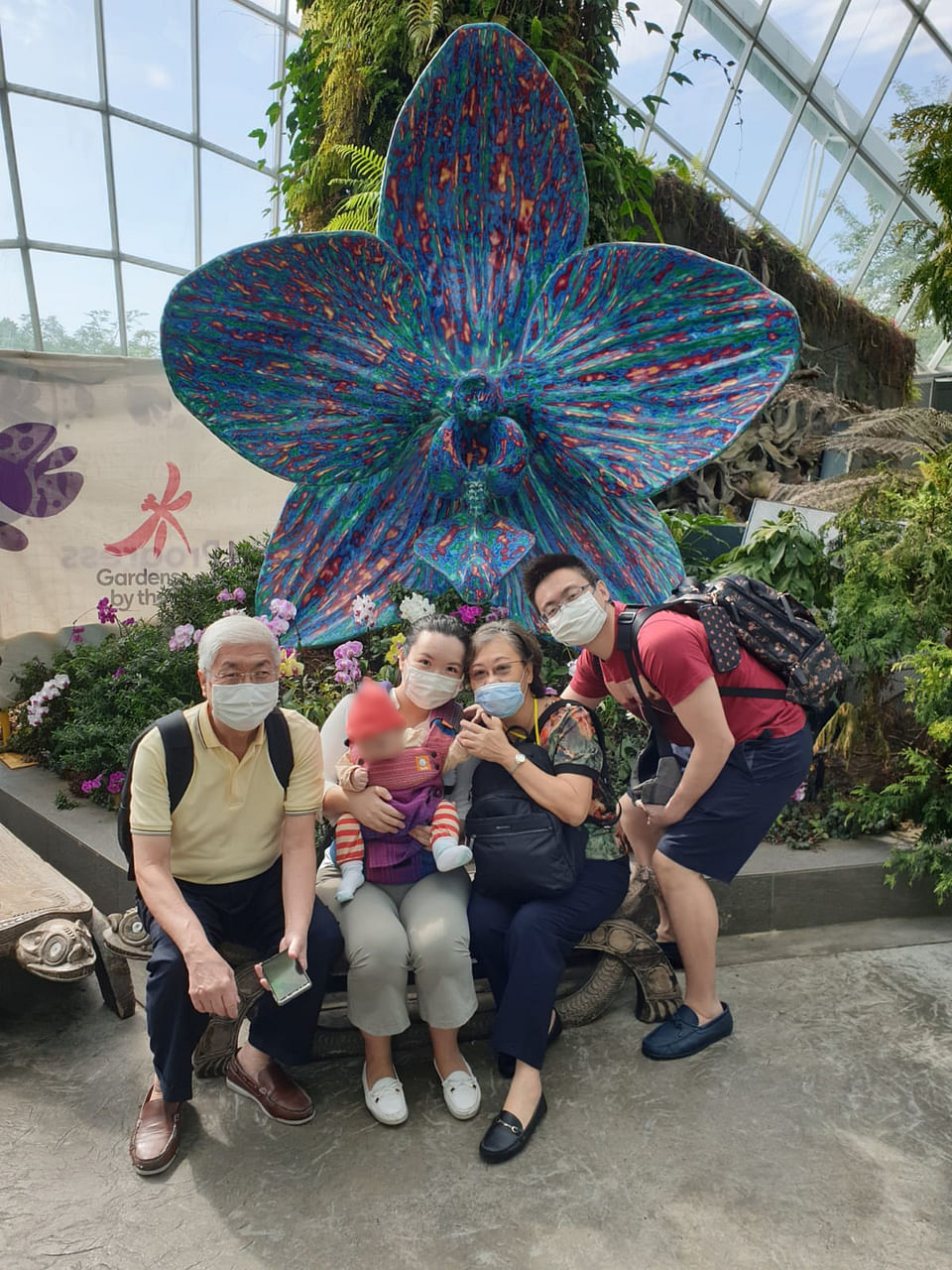Grandmother hospitalised after taking ivermectin to ‘protect herself’ against Covid-19
SINGAPORE - A 65-year-old retiree fell violently ill and has been hospitalised after taking a drug meant to treat parasite infestations on the urging of her church friends to protect herself from Covid-19.Madam Wong Lee Tak had taken four 3mg tablets of ivermectin over two days. She became ill on Friday (Oct 1), believed to be her second day of taking the prescription drug.
She suffered a 39.3 deg C fever, inflammation on her joints and would "vomit violently" after eating food, said her daughter Vanessa Koh, 32.
"I couldn't get her to eat anything. She had some oats to eat before she took medicine, but she vomited everything violently. It just exploded out of her mouth," Ms Koh told The Straits Times on Monday (Oct 4).
She took her mother to Sengkang General Hospital on Friday (Oct 1), where she remains hospitalised in stable condition.
The family initially thought that Madam Wong was suffering from side effects to her first jab of the Sinopharm vaccine that she took on Sept 23.
Ms Koh said it had taken months of heated persuasion to convince her mother to get vaccinated, as a group of close friends from the Church of the Risen Christ had urged her not to get vaccinated with the mRNA vaccines as it was against God.
"We got into quite a lot of quarrels because she didn't want to be vaccinated," said Ms Koh.
"It was such a strain on my family as with all her conditions, (my mother) is a sure-hit if she gets the virus."
Madam Wong has diabetes and high blood pressure, which makes her vulnerable to severe illness, said Ms Koh.
In the end, her mother chose to get the Chinese Sinopharm vaccine.
While it did not have the highest efficacy rate against Covid-19, it was better than nothing for her mother, said Ms Koh, who felt it was important that her mother get protected.
The banker said her one-year-old son was looked after by her mother during the day.
"My son could feel something was not right with my mum on Friday when she kept lying on the bed. When we didn't let him near her, he wanted to cry," said Ms Koh, whose father is now looking after her son.
"Today, he kept going to the study room, hoping to find her sitting there."

While looking after her mother when her symptoms first surfaced, Ms Koh found messages on her mother's phone, which revealed that a church member had taken orders for purchases of 1,000 ivermectin pills for $110.
A photo of a table recommending the drug's dosage by body weight for "prophylaxis and treatment of Covid-19" was sent by another member.
Ivermectin cannot be purchased over the counter but is usually prescribed by a doctor to treat head lice and other infestations. It is also used in large quantities to treat animals such as dogs and horses for heartworm and parasites.
A cautionary note on the packaging said the pills were not to be sold by retail without the prescription of a registered medical practitioner.
Ivermectin garnered attention late last year after early research indicated its potential in treating Covid-19, but the World Health Organisation in March warned that evidence was inconclusive and more studies were needed.
Ms Koh said she confronted her mother, who revealed she had purchased nine boxes of some 1,000 pills, which she hid in her study room.
"It was like carrying out my own mini drug raid. But when I asked my mother about why she is taking this, she can't tell me anything that is scientifically sound," said Ms Koh.
Her mother told her she had taken ivermectin as she believed the vaccine was useless.
"I know she just wants to say that vaccines are Satanic. She and her friends are not interested in science."
In Madam Wong's text messages, one church friend had told her, "don't allow Satan to win" and that the virus was a test of faith.
Ms Koh said she had never met the group members, and that they have not contacted her or her mother since she fell ill.
The group administrators have since removed her mother from the Telegram chats and erased all conversations with her, she added.
"They shouldn't pretend that they are experts. They told her to get ivermectin, but now my mother is suffering alone.
"(These friends) have been a pain to the family for a long time, but this time it was a step too far," said Ms Koh, who posted about her mother's ordeal on Facebook on Sunday, along with photos of her mother's text conversations with various church friends.
In response to Ms Koh's post, parish priest Edward Lim from the Church of the Risen Christ said on Facebook that the church was aware that one of its parishioners had been hospitalised after ingesting ivermectin on the advice of some church friends.
He said: "We would like to advise everyone to protect themselves from the Covid-19 virus by taking officially prescribed safety measures available to them. Only accept vaccines approved by the authorities which are made available at accredited centres authorised to administer the jabs."
He also clarified that while the decision to be vaccinated is a personal choice, all followers were encouraged to get vaccinated "for the greater good of the community".
He also quoted Archbishop William Goh, the head of the Roman Catholic Church in Singapore as saying: “We all have a moral duty to protect our health, and a similar moral duty to pursue the common good of the health of everyone in society. Vaccination seems to be the best means available to us now to prevent the spread of the Covid-19 pandemic.”

